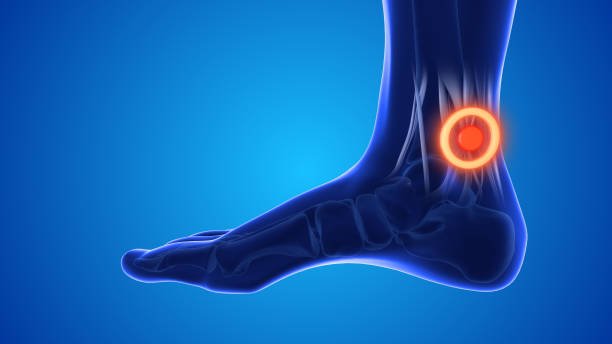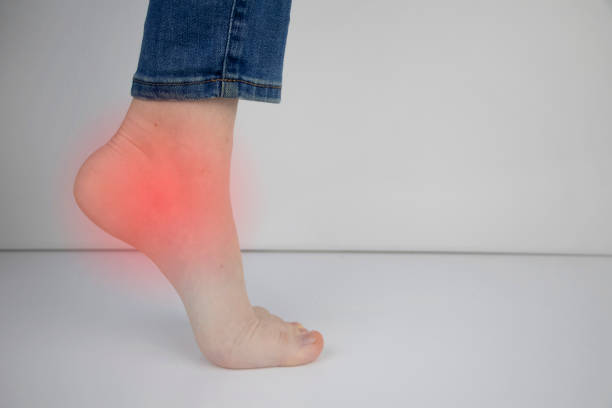Is heel pain a sign of cancer
Heel pain is currently one of the most common issues, which affect millions of people worldwide. Despite knowing that the condition is relatively prevalent and the possibilities can range from plantar fasciitis or heel spurs or injury, some people may wonder whether the heel pain at all can be linked to cancer. But is heel pain a sign of cancer? We aims at fulfilling that; it also explains what causes heel pain and when one needs to see a doctor.
Heel pain, also known as plantar fasciitis: A Medical Guide
Possible sources of heel pain are tension, inflammation, and trauma of the heel’s tissues. For most people, it’s not related to cancer but rather conditions like:
Plantar fasciitis:
This is one of the commonest causes of experiencing a heel ache. It is diagnosed when any of the ligaments that exist at the sole of the feet get inflamed due to overstretching, overuse, or both.
Heel Spurs:
They are harmless tumors that develop on your heelbone, particularly because of plantar fasciitis.
Stress Fractures:
The most common root causes of the miner microstress fractures of the heel are high-impact activities and athletic endeavors, especially when performed on a barefoot basis.
However, while these are the primary reasons for heel pain, it’s natural to wonder: Is heel pain a sign of cancer? Although it is rare when cancer might be a reason for heel pain, it is important to know when exactly this can happen.
Is heel pain a sign of cancer? Major potential risk factors that are associated with cancer
It is, however, much more likely that the heel pain does not point to cancer, but there are undoubtedly some types of cancer that cause heel pain. The awareness made could help lessen the anxiety it produces and help the person train himself on when to get help when it is most required.

Bone Cancer
Primary bone cancer is uncommon, and if diagnosed, it may spread to the bones of the foot and even the heel. Principle bone cancer that might be associated with bone pain may well have attained the heel stage of its endurance. This type of cancer also manifests with related presenting complaints such as swelling, pain, and the growth of a lump adjacent to the infected tissue.
Metastatic Cancer
Some other primary malignancies from other sites, such as breast, lung, and kidney, amongst many others, can metastasize to the bones, including the heel. Metastasis to the heel is a very rare type of bone metastasis, however, a very painful one. If you are wondering, “Is heel pain a sign of cancer?” it must be stated that metastatic cancers come complete with several of these symptoms, including weight loss, fatigue, and other evaluable signs of metastatic disease.
Soft Tissue Sarcoma
Possibly they might be dreaming of some frequent sarcomas of the bones, which are other bone cancer, but that is the other extreme of the range of soft tissue sarcomas, which hits the soft tissues of muscles, fat, or connective tissues in the human body. That is why when it occurs in the foot it may be uncomfortable and cause conditions like heel pain. Sometimes the on cogenesis by sarcomas may result in development of local swelling, outgrowths and the patient would be aware of the lump in his body.
Other manifestations are fatigue, high fever, or an unintended loss of weight.
However, if you are having signs and symptoms that are not usual beyond heel pain conditions, then it will be reasonable to consult your doctor to determine that your heel pain is because of some other disease or that it may be cancerous.
This is particularly in a patient with a history of cancer and thus considered a potential candidate to develop a metastatic lesion at the heelbone.
Thus, the therapy of heel pain mainly depends on the origin of the problem. Here are common approaches:
Rest and footwear changes
Combined with proper utilization of foot and shoe resting places, it is a major remedy for plantar fasciitis and heel spurs, amongst others.
Physical Therapy
There are some motion and physical therapy exercises that can improve the flexibility of the foot, which makes discomfort from Achilles tendinitis inevitable.
Medications and Injections
There are low-strength, over-the-counter drugs that help reduce inflammation and pain, including aspirin and ibuprofen, and a cortisone shot.
Cancer-Specific Treatments
When a health care provider assesses a patient complaining of heel pain, the patient will be made to undergo surgery, radiation therapy, chemotherapy or other targeted therapy basing on the type and stage of cancer affecting the heel.

Conclusion: Is heel pain a sign of cancer?
So, is heel pain a sign of cancer? For the vast majority, however, the answer is negative; plantar fasciitis or heel spurs are far more frequently the cause for the heel pain. However, pain at times of bone or soft tissue cancer that has resulted in a pathological fracture is also expected at certain times.
FAQs about Is heel pain a sign of cancer
Is it impossible for heel pain to be the only sign of cancer?
Contrary to some types of cancer, localized pain is quite rare as a first initial sign. Nonetheless, cancer-related heel pain has other features with it, such as inflammation, fatigue, or other general diseases.
What can either tell me that the heel pains that I felt when I was walking are normal or that the pains are severe symptoms?
The symptoms, which warrant a visit to the doctor if you had chronic standing heel pain, if your pain became progressive, if it becomes chronic, if the pain increases by the day, or if it is associated with such things as swelling, loss of weight, or fatigue, should be sought.


